2140
Dangerous technology
For example, nanotechnology. On the one hand, they can put an end to deficits in virtually every industry, they can clean up the environment, to alter a person (physiologically, biochemically and genetically), but on the other hand they can be used for the destruction of life on Earth in a relatively short period of time. So when it comes time for the creation and development of technologies of the future, we need to be extremely cautious.
Technological breakthrough - it is not only the benefits, and artificial intelligence can be an example. Patrick Lin, director of «Ethics + Emerging Sciences Group» California Polytechnic State University says:
"Technology for inherently neutral. Their immorality is a myth that must be dispelled. Each creator can fill his creation morality, even if it is in itself it does not matter. In most cases, people do not notice, but some modern technology originally born with malice. In any case, everyone knows that most of the established technologies can be used for good and ill. If the chance of using the detriment of more, then this may be the reason that create the technology just is not worth it. "

Nanooruzhie
Nothing can end our reign here on Earth, faster than the weapon "molecular assembly".
Two very powerful factors give rise to the threat. This uncontrolled self-reproduction and spontaneous spread of such weapons with exponentially. Government or ordinary person can design microscopic machines that will consume the finite resources of our planet at the speed of light and at the same time to reproduce itself, creating a useless product, called "gray goo".
Theorist Robert Freitas, carried away by nanotechnology, came to the conclusion that in our world can exist several kinds nanoubiyts: gray dust, gray plankton, gray lichen and so-called killer biomass. Gray dust will not miss sunshine, gray plankton replicator will create the underwater world, which will absorb the energy-rich underwater world, gray lichens destroy the earth's vegetation and biomass killer will attack and destroy all possible organisms.
According to Freitas, the worst case scenario for mankind - a scenario of "global ecophagy" (Ecophagy or gray goo - hypothetical doomsday scenario associated with the success of molecular nanotechnology) will take about 20 months, it is enough to advance to create an effective defense. As protection, Freitas has in mind probably countermeasures involving self-replicating nanotechnology, or some sort of systems that violate the internal mechanisms of nanobots. On the other hand, we could create an "active shields" in advance, although most experts believe that they will be useless.
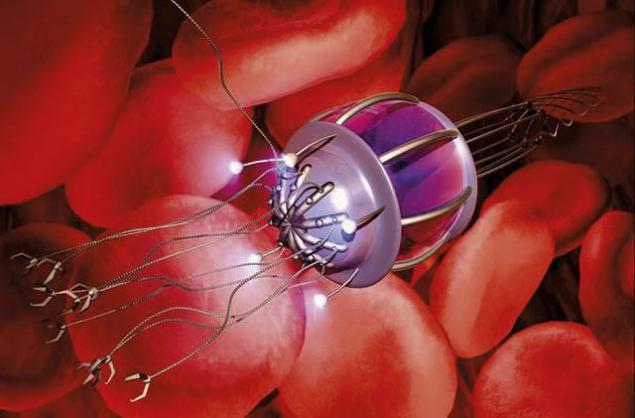
Machines with consciousness
The idea that, in the end, we are endowed with intelligence machine, is perceived quite naturally. But you first need to think twice before doing so. Creating a machine with a functioning brain inside (literally and figuratively), is able to simulate human and animal can be dangerous for us.
Back in 2003, the philosopher Thomas Metzinger argued that it would be terribly unethical to develop software that can suffer.
What would you say if someone came and said: "We want to genetically modify the mentally retarded babies for general scientific progress. We need children with certain cognitive and emotional limitations to explore the postpartum psychological development! "You would definitely have decided that it is not only absurd, horrifying, and immoral idea. I hope that none of the ethics committee does not approve it in the modern world. Today, however, the ethics committee does not see this as a prototype of the first car of the rational.
Futurist Louis Helm agree with this point of view. That's what he told me:
"One of the main advantages of computers is that you can ask them a million programs and objectives, and they will not be bored to implement them, as it would be with a man who still would have taken offense at such a volume of work. Since we plan to use artificial intelligence instead of human intellectual work, I think it would be immoral to intentionally programmed machines with consciousness. »
Put consciousness into the machine, and make it do the work for us, in fact, is real slavery. In addition, the consciousness - is really a fragile thing. Just a few incorrectly encoded genes in the human body can cause Down syndrome, schizophrenia, autism or epilepsy. It is terrible to know that you originally programmed for dysfunction. And it was so thinking machines will be programmed.
For example, some well-funded developers AI (Artificial intelligence - Artificial Intelligence) want to recreate human intelligence in machines, mimicking the biological structure of the human brain. In order to prevent the collapse of society, it should not prevent the creation of artificial intelligence with self-consciousness. Not because it is not cool or impossible, but simply because the use of conscious being, even if the robot, in fact, is slavery.
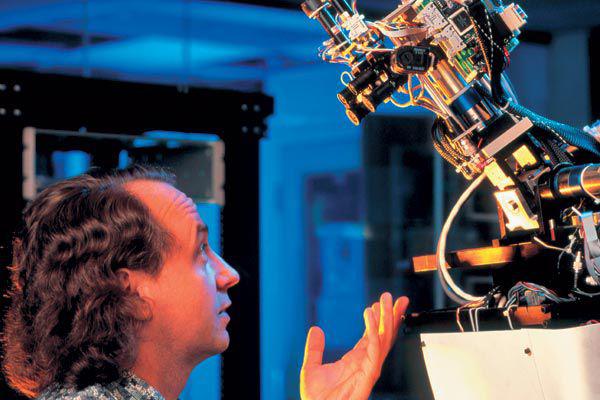
Artificial superintelligence
According to this year Stephen Hawking "the creation of artificial intelligence may be our biggest mistake in history." In fact, as we have already mentioned, the emergence of superintelligence could prove disastrous for themselves on. Implementation of systems that will be faster and smarter than us, force us to step aside. We'll just wait for the mercy of superintelligence - and not the fact that we can create AI with friendly intentions, so that the creation of a super AI will complete madness.

Travel back in time
If you think clearly, then, in essence, time travel - the most impossible of all technologies. But, if possible, should stay away from it. It would be incredibly dangerous. Any sci-fi film about time offset intervals necessarily tempting to think about the potential dangers of such a journey. And even if some form of quantum time travel is possible, cultural and technological exchange between disparate civilizations could end badly.

Device, read minds
Even today, there are successes in creating machines that can read minds and memories of people at a distance, without their consent. But probably it would only be possible after the human brain in any way be integrated into the internet network or other communication means.
Last year, for example, scientists from the Netherlands used data from brain scanning algorithms to determine what letters watched people. The experiment was a real breakthrough, and showed that even now it is possible to restore the human mind with a sufficiently high level of detail, including information about what we see, think and remember. Such devices if they are massively used in any totalitarian regime, will make life unbearable. This will be a kind of Orwellian world in which there will be a really punishment for "mental crime".
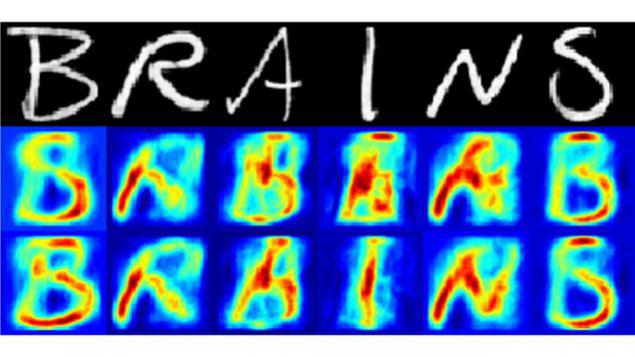
Device, "crack the" brain
Another possibility to change our minds against our will and without our knowledge. As soon as our brain establish a chip, we become vulnerable to the influence on them from outside and our minds will be available on the Internet, about the same as your device from which you are reading this article.
Incredibly, we have already taken the first steps towards this goal. Recently, an international team of neuroscientists set up an experiment that allowed participants to communicate via the Internet is essentially using the so-called "digital telepathy." Of course, it's great, but it's a digital telepathy could open a Pandora's box. Perhaps one of the possible scenarios described in "Ghost in the Shell", where the hacker was artificial intelligence capable of modifying memories and intentions of their victims. Now imagine a weapon in the hands of organized crime or paranoid governments.

Autonomous killer robots
This problem has already today. Here that on this occasion said futurist Michael La Torre:
"We have as yet no such machine, which would demonstrate the general level of intelligence as a person, but a special roboubiytsam do not mind. Creating a robotic fighting machines of all kinds have been delivered to the stream. Robo -tanki, -samolety, off-vehicle, -podvodnye boats, and human-robosoldaty exist today. Unlike remote-controlled drones, military robots can identify targets and destroy them without human intervention, giving themselves a final order "fire". The danger of such technologies is obvious, because even today, controlled by soldiers, robots are already many tens of times mistakenly killed their own, or even innocent civilians. »
The great danger lurks in the international arms race that could begin, if any nation will commission of such troops. After a few cycles of improvement of this technique, its level can surpass all conceivable facets. Autonomous robots can affect any system controlled by man. Then, either by accident or have malicious intent, mankind would be in complete subjection of artificial intelligence.
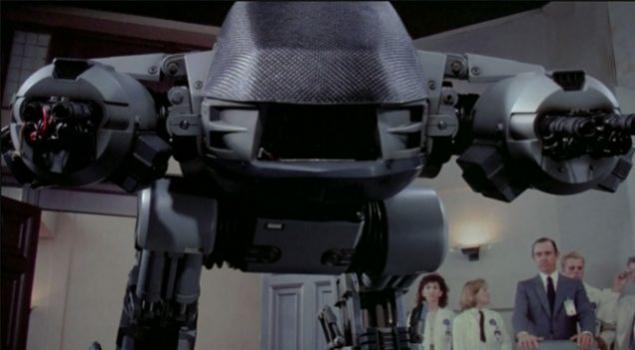
Viruses
Another very bad idea. Back in 2005, Ray Kurzweil and Bill Joy noted that the publication of the genomes of deadly viruses - it's like a recipe for pancakes, but eventually get the products for the destruction of all life on Earth. There is always a probability that some idiot fan or recreate the virus or improves existing, to make it even more effective, and then "release" in the world. It has been estimated that, for example, a modified avian flu could kill half the world's population. So researchers from China have joined avian and swine flu, creating a mutant virus that is transmitted by airborne droplets. The idea that the enemy must know in person, of course good, but still it is worth remembering the fact that mutant viruses can be used as a weapon to attack. Also, there is always the danger that the virus can escape from the lab and wreak havoc.

Virtual prison and punishment
What are prisons and punishment when people can live for hundreds or thousands of years? Ethicist Rebecca Roach sees the following scenario:
"The benefits of dramatically increasing life expectancy are obvious, but it can also cause increase in the severity of punishment. Imagine that a person can live more than 1000 years, then he will be negligible 5-50 years maturity, hence the length of time for all crimes will increase. But the problem arises when the law-abiding citizens will be required to pay 100-500 years the murderer, and it is quite reasonable. This, of course, will hit the pocket of society. However, if the increase in life expectancy was povsemestro, these costs could be offset by increased contributions over the long-lived representatives of the workforce. »
But most likely by that time there will be ways of programming activity of the human brain. Programming the brain sentenced to ultra-fast operation, we can turn it into 8.5-hour stay in jail in 1000 years hard labor. Obviously, it would be much cheaper than the serving of the 1000-year sentence in real time.
This is certainly good, but there are also ethical and moral side of the issue.

Designing hell
This is somewhat similar to the previous "technology". Some futurists also talk about the use of advanced technologies, especially for virtual reality consciousness boot directly into the human brain. As well come after a hard day, connect the brain to the network and be in paradise. But if you can create a paradise, you can create and hell. In fact, this is one of the worst ideas you can imagine. This is another reason that should prohibit the development of artificial superintelligence due to fear the onset of the so-called era of Basilisk Roco.
Basilisk Rocko - a godlike form of artificial intelligence, so dangerous, that if you just think about it, then spend the rest of my days in the horrific torture.
And given the fact that modern people hooked on modern technologies (eg social networks), the future of humanity in a pair of high-tech does not seem so bright.
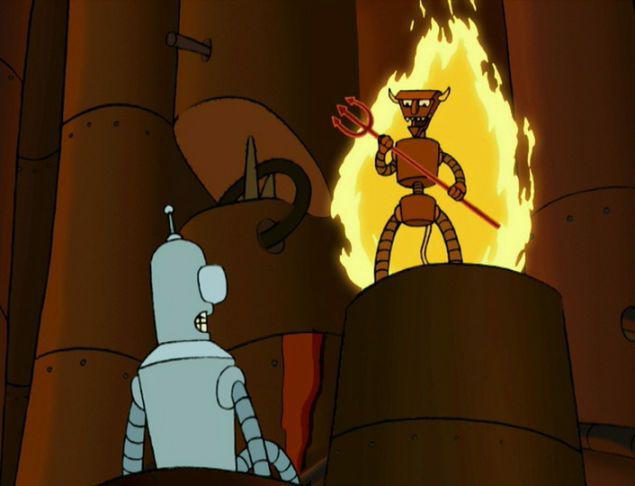
Source: muz4in.net
Technological breakthrough - it is not only the benefits, and artificial intelligence can be an example. Patrick Lin, director of «Ethics + Emerging Sciences Group» California Polytechnic State University says:
"Technology for inherently neutral. Their immorality is a myth that must be dispelled. Each creator can fill his creation morality, even if it is in itself it does not matter. In most cases, people do not notice, but some modern technology originally born with malice. In any case, everyone knows that most of the established technologies can be used for good and ill. If the chance of using the detriment of more, then this may be the reason that create the technology just is not worth it. "

Nanooruzhie
Nothing can end our reign here on Earth, faster than the weapon "molecular assembly".
Two very powerful factors give rise to the threat. This uncontrolled self-reproduction and spontaneous spread of such weapons with exponentially. Government or ordinary person can design microscopic machines that will consume the finite resources of our planet at the speed of light and at the same time to reproduce itself, creating a useless product, called "gray goo".
Theorist Robert Freitas, carried away by nanotechnology, came to the conclusion that in our world can exist several kinds nanoubiyts: gray dust, gray plankton, gray lichen and so-called killer biomass. Gray dust will not miss sunshine, gray plankton replicator will create the underwater world, which will absorb the energy-rich underwater world, gray lichens destroy the earth's vegetation and biomass killer will attack and destroy all possible organisms.
According to Freitas, the worst case scenario for mankind - a scenario of "global ecophagy" (Ecophagy or gray goo - hypothetical doomsday scenario associated with the success of molecular nanotechnology) will take about 20 months, it is enough to advance to create an effective defense. As protection, Freitas has in mind probably countermeasures involving self-replicating nanotechnology, or some sort of systems that violate the internal mechanisms of nanobots. On the other hand, we could create an "active shields" in advance, although most experts believe that they will be useless.

Machines with consciousness
The idea that, in the end, we are endowed with intelligence machine, is perceived quite naturally. But you first need to think twice before doing so. Creating a machine with a functioning brain inside (literally and figuratively), is able to simulate human and animal can be dangerous for us.
Back in 2003, the philosopher Thomas Metzinger argued that it would be terribly unethical to develop software that can suffer.
What would you say if someone came and said: "We want to genetically modify the mentally retarded babies for general scientific progress. We need children with certain cognitive and emotional limitations to explore the postpartum psychological development! "You would definitely have decided that it is not only absurd, horrifying, and immoral idea. I hope that none of the ethics committee does not approve it in the modern world. Today, however, the ethics committee does not see this as a prototype of the first car of the rational.
Futurist Louis Helm agree with this point of view. That's what he told me:
"One of the main advantages of computers is that you can ask them a million programs and objectives, and they will not be bored to implement them, as it would be with a man who still would have taken offense at such a volume of work. Since we plan to use artificial intelligence instead of human intellectual work, I think it would be immoral to intentionally programmed machines with consciousness. »
Put consciousness into the machine, and make it do the work for us, in fact, is real slavery. In addition, the consciousness - is really a fragile thing. Just a few incorrectly encoded genes in the human body can cause Down syndrome, schizophrenia, autism or epilepsy. It is terrible to know that you originally programmed for dysfunction. And it was so thinking machines will be programmed.
For example, some well-funded developers AI (Artificial intelligence - Artificial Intelligence) want to recreate human intelligence in machines, mimicking the biological structure of the human brain. In order to prevent the collapse of society, it should not prevent the creation of artificial intelligence with self-consciousness. Not because it is not cool or impossible, but simply because the use of conscious being, even if the robot, in fact, is slavery.

Artificial superintelligence
According to this year Stephen Hawking "the creation of artificial intelligence may be our biggest mistake in history." In fact, as we have already mentioned, the emergence of superintelligence could prove disastrous for themselves on. Implementation of systems that will be faster and smarter than us, force us to step aside. We'll just wait for the mercy of superintelligence - and not the fact that we can create AI with friendly intentions, so that the creation of a super AI will complete madness.

Travel back in time
If you think clearly, then, in essence, time travel - the most impossible of all technologies. But, if possible, should stay away from it. It would be incredibly dangerous. Any sci-fi film about time offset intervals necessarily tempting to think about the potential dangers of such a journey. And even if some form of quantum time travel is possible, cultural and technological exchange between disparate civilizations could end badly.

Device, read minds
Even today, there are successes in creating machines that can read minds and memories of people at a distance, without their consent. But probably it would only be possible after the human brain in any way be integrated into the internet network or other communication means.
Last year, for example, scientists from the Netherlands used data from brain scanning algorithms to determine what letters watched people. The experiment was a real breakthrough, and showed that even now it is possible to restore the human mind with a sufficiently high level of detail, including information about what we see, think and remember. Such devices if they are massively used in any totalitarian regime, will make life unbearable. This will be a kind of Orwellian world in which there will be a really punishment for "mental crime".

Device, "crack the" brain
Another possibility to change our minds against our will and without our knowledge. As soon as our brain establish a chip, we become vulnerable to the influence on them from outside and our minds will be available on the Internet, about the same as your device from which you are reading this article.
Incredibly, we have already taken the first steps towards this goal. Recently, an international team of neuroscientists set up an experiment that allowed participants to communicate via the Internet is essentially using the so-called "digital telepathy." Of course, it's great, but it's a digital telepathy could open a Pandora's box. Perhaps one of the possible scenarios described in "Ghost in the Shell", where the hacker was artificial intelligence capable of modifying memories and intentions of their victims. Now imagine a weapon in the hands of organized crime or paranoid governments.

Autonomous killer robots
This problem has already today. Here that on this occasion said futurist Michael La Torre:
"We have as yet no such machine, which would demonstrate the general level of intelligence as a person, but a special roboubiytsam do not mind. Creating a robotic fighting machines of all kinds have been delivered to the stream. Robo -tanki, -samolety, off-vehicle, -podvodnye boats, and human-robosoldaty exist today. Unlike remote-controlled drones, military robots can identify targets and destroy them without human intervention, giving themselves a final order "fire". The danger of such technologies is obvious, because even today, controlled by soldiers, robots are already many tens of times mistakenly killed their own, or even innocent civilians. »
The great danger lurks in the international arms race that could begin, if any nation will commission of such troops. After a few cycles of improvement of this technique, its level can surpass all conceivable facets. Autonomous robots can affect any system controlled by man. Then, either by accident or have malicious intent, mankind would be in complete subjection of artificial intelligence.

Viruses
Another very bad idea. Back in 2005, Ray Kurzweil and Bill Joy noted that the publication of the genomes of deadly viruses - it's like a recipe for pancakes, but eventually get the products for the destruction of all life on Earth. There is always a probability that some idiot fan or recreate the virus or improves existing, to make it even more effective, and then "release" in the world. It has been estimated that, for example, a modified avian flu could kill half the world's population. So researchers from China have joined avian and swine flu, creating a mutant virus that is transmitted by airborne droplets. The idea that the enemy must know in person, of course good, but still it is worth remembering the fact that mutant viruses can be used as a weapon to attack. Also, there is always the danger that the virus can escape from the lab and wreak havoc.

Virtual prison and punishment
What are prisons and punishment when people can live for hundreds or thousands of years? Ethicist Rebecca Roach sees the following scenario:
"The benefits of dramatically increasing life expectancy are obvious, but it can also cause increase in the severity of punishment. Imagine that a person can live more than 1000 years, then he will be negligible 5-50 years maturity, hence the length of time for all crimes will increase. But the problem arises when the law-abiding citizens will be required to pay 100-500 years the murderer, and it is quite reasonable. This, of course, will hit the pocket of society. However, if the increase in life expectancy was povsemestro, these costs could be offset by increased contributions over the long-lived representatives of the workforce. »
But most likely by that time there will be ways of programming activity of the human brain. Programming the brain sentenced to ultra-fast operation, we can turn it into 8.5-hour stay in jail in 1000 years hard labor. Obviously, it would be much cheaper than the serving of the 1000-year sentence in real time.
This is certainly good, but there are also ethical and moral side of the issue.

Designing hell
This is somewhat similar to the previous "technology". Some futurists also talk about the use of advanced technologies, especially for virtual reality consciousness boot directly into the human brain. As well come after a hard day, connect the brain to the network and be in paradise. But if you can create a paradise, you can create and hell. In fact, this is one of the worst ideas you can imagine. This is another reason that should prohibit the development of artificial superintelligence due to fear the onset of the so-called era of Basilisk Roco.
Basilisk Rocko - a godlike form of artificial intelligence, so dangerous, that if you just think about it, then spend the rest of my days in the horrific torture.
And given the fact that modern people hooked on modern technologies (eg social networks), the future of humanity in a pair of high-tech does not seem so bright.

Source: muz4in.net
























